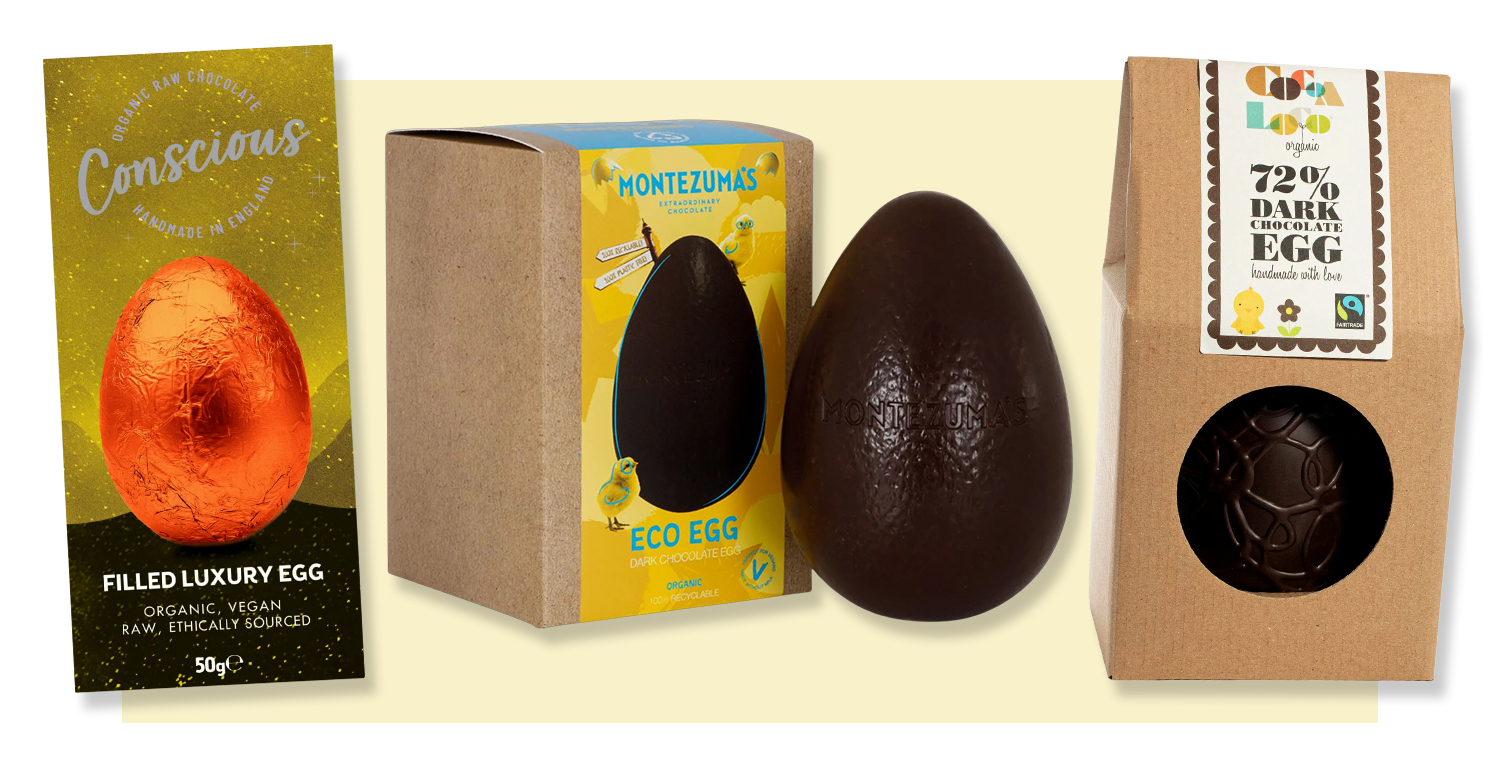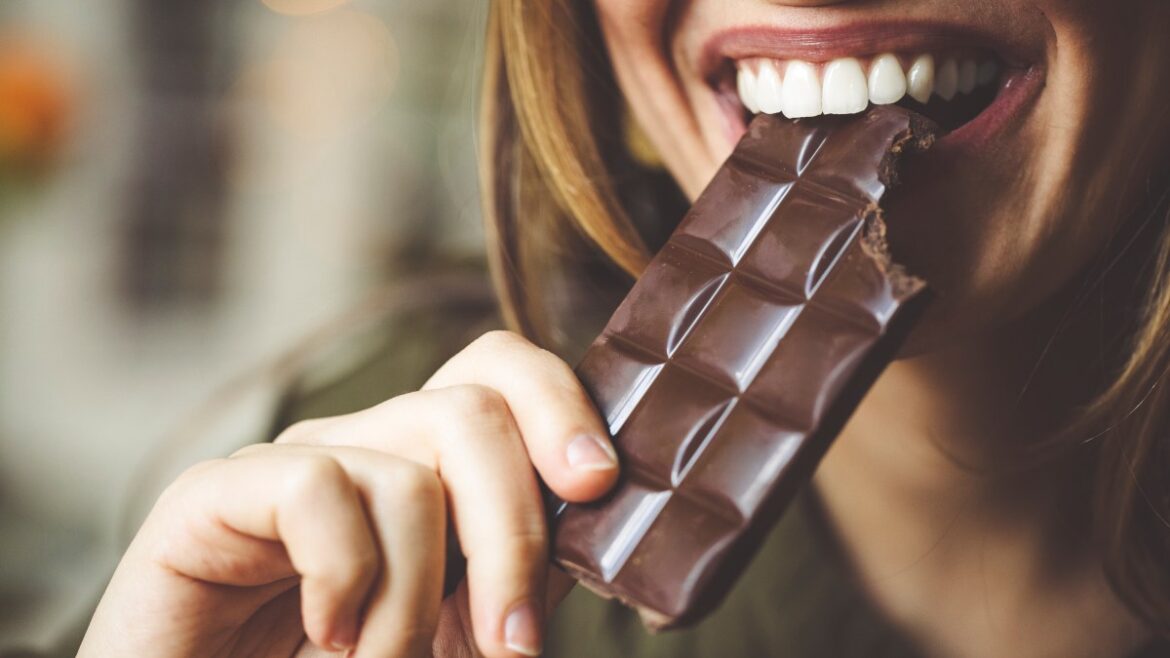It’s Easter, which means that millions of us will be doing one thing: eating chocolate. About 80 million Easter eggs are sold in the UK each year, according to the British Retail Consortium. But what if you want to opt for something healthier this year? Could a dark chocolate iteration be the answer? We asked the experts whether it really is a good alternative.
“Dark chocolate can be a nutritious addition to the diet in moderation,” says Nichola Ludlam-Raine, a specialist dietitian and the author of How Not to Eat Ultra-Processed, who eats dark chocolate daily. “It contains polyphenols, especially flavanols, which have antioxidant and anti-inflammatory properties. These compounds have been linked to benefits such as improved blood flow, reduced blood pressure, and potentially better heart and brain health. Dark chocolate also provides small amounts of essential minerals like magnesium, iron and copper.” What’s Ludlam-Raine’s go-to bar? She likes Aldi’s Moser Roth 85% Cocoa Chocolate Bar (125g, £2.25), or a plain Lindt (100g, £3) or Tesco bar (100g, £2.40) above 70 per cent cocoa.
Should I choose a bar with a cocoa content of over 70 per cent? And is it good for my cognitive health?
The benefits of dark chocolate are most noticeable in bars with more than 70 per cent cocoa content, according to researchers at Loma Linda University in California, who analysed two studies.
The flavanols in dark chocolate are natural antioxidants that can help to reduce inflammation, according to Lee S Berk, an associate professor who led the research. He said the studies also suggested that dark chocolate could be good for our brain health. “The higher the concentration of cacao, the more positive the impact on cognition, memory, mood, immunity and other beneficial effects.” Ludlam-Raine cites a review published in Frontiers in Nutrition in 2022 which explored the neuroprotective effects of cocoa flavanols, suggesting potential cognitive benefits.
Is a bar with a cocoa content of 90 per cent the ideal?
Not really, Ludlam-Raine says. “A 90 per cent dark chocolate does tend to contain significantly more cocoa solids and less sugar than lower percentage options, which means a higher concentration of beneficial flavanols. However, it’s also much more bitter, so it really comes down to personal taste and what you can enjoy regularly in moderation. There’s a diminishing return in terms of benefit once you go above 70 per cent, so 90 per cent isn’t essential for everyone, but it can be a great choice if you like it and want to limit added sugars.”
How much dark chocolate do I need to consume to reap the benefits?
Ludlam-Raine says that as a general guide, a small portion of about 20-30g (that’s about two to three squares) of high-quality dark chocolate a few times a week is a sensible amount. Consuming large quantities can contribute to excess calorie intake and displace other nutrient-rich foods.
• The foodie’s top 10 chocolate treats for Easter (and beyond)
How can eating dark chocolate help reduce my blood pressure?
Cocoa flavanols can increase nitric oxide production, which helps to relax blood vessels, improve blood flow and lower blood pressure. “Research published in journals such as the American Journal of Clinical Nutrition and BMJ has found associations between moderate dark chocolate intake and improved cardiovascular markers, including lower blood pressure and better endothelial function,” Ludlam-Raine says.
Can dark chocolate improve my gut health?
Tim Spector, a professor of genetic epidemiology at King’s College London and co-founder of the nutrition app Zoe, is a fan of dark chocolate, praising its high fibre content and gut health benefits. Much like the polyphenols in fruits, nuts and seeds, those in dark chocolate “are like rocket fuel for your gut microbes”, according to Spector. In an Instagram video, he explained that the fibre in one portion (approximately three squares) is double that of a slice of wholegrain bread. “So if, like me, you love dark chocolate, I would suggest that the high level of polyphenols and fibre content in a 70 per cent cocoa bar probably balances out the sugar and fat content,” he said.
How concerned should I be about emulsifiers and UPFs?
“Most good-quality dark chocolate is considered only minimally processed or processed, rather than ultra-processed, especially if the ingredients list is short and recognisable,” Ludlam-Raine says. “That said, some brands may include emulsifiers like soya lecithin, which are added to improve texture and shelf life.”
Evidence of the impact of emulsifiers like these on gut health (particularly the microbiome and intestinal barrier) is still emerging and largely based on animal or cell studies, but small amounts are not likely to be detrimental to health. “So while it’s wise to be mindful about UPFs [ultra-processed foods] in general, occasional consumption of dark chocolate with standard emulsifiers is unlikely to cause harm for most people,” Ludlam-Raine says, adding that if you do want to minimise your exposure to anything potentially harmful, look for brands with simpler ingredients lists — ideally just cocoa mass, cocoa butter, and a little sugar or soya lecithin.
Is there anything else I should look for on the label?
Some brands indicate flavanol content on the packaging, which can be useful, Ludlam-Raine says. “Organic or Fairtrade certification is a nice extra if you’re looking for ethical options,” she adds.
• 11 deliciously easy chocolate recipes for Easter
Is there anything I should be worried about when it comes to eating dark chocolate?
“Despite its benefits, dark chocolate still contains added sugars and some saturated fat [the less preferred fat for health], particularly in lower-percentage varieties,” Ludlam-Raine says. “Overconsumption may lead to weight gain if not accounted for within overall energy balance.”
Some dark chocolate products can be high in caffeine, which may not be suitable for those who struggle with sleep issues, for example. Indeed, “those with caffeine sensitivity or insomnia may find it disrupts sleep, especially if consumed in the evening, or people prone to kidney stones may need to limit foods high in oxalates, including dark chocolate,” Ludlam-Raine says. It can also be a trigger food in people who suffer from migraine attacks or acid reflux.
 Ludlam-Raine’s top three eggs
Ludlam-Raine’s top three eggs
Conscious Chocolate Luxury Filled Vegan Easter Egg, 50g, £5, planetorganic.com
Montezuma’s Organic Dark Chocolate Eco Egg, 150g, £12, montezumas.co.uk
Cocoa Loco 72% Dark Chocolate Easter Egg, 225g, £15, planetorganic.com

